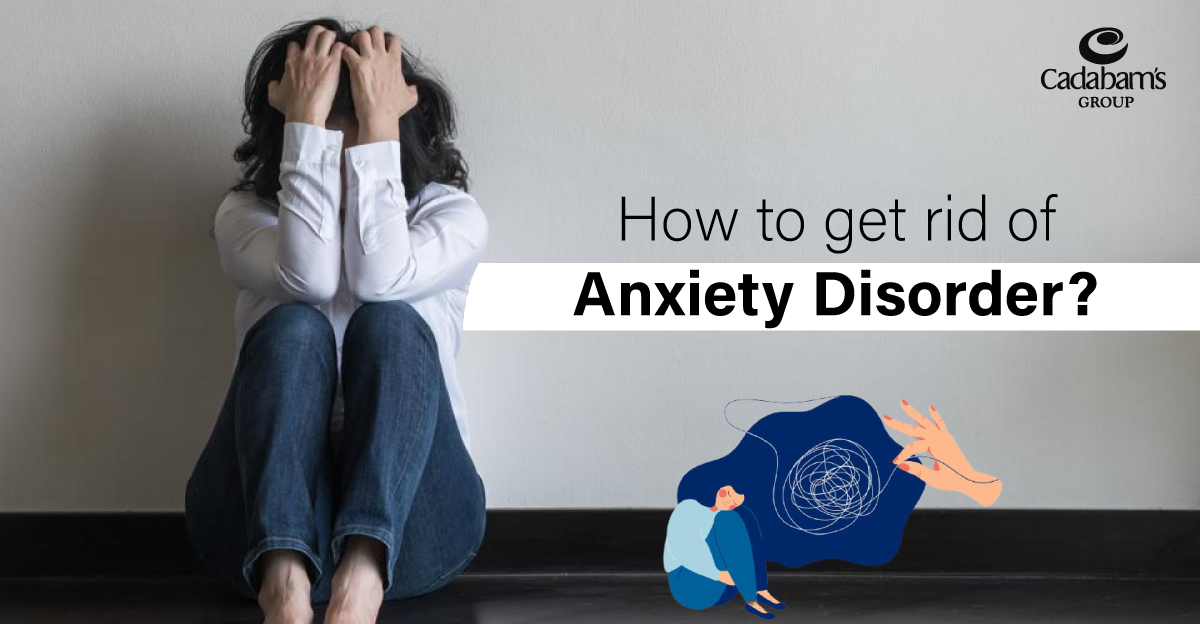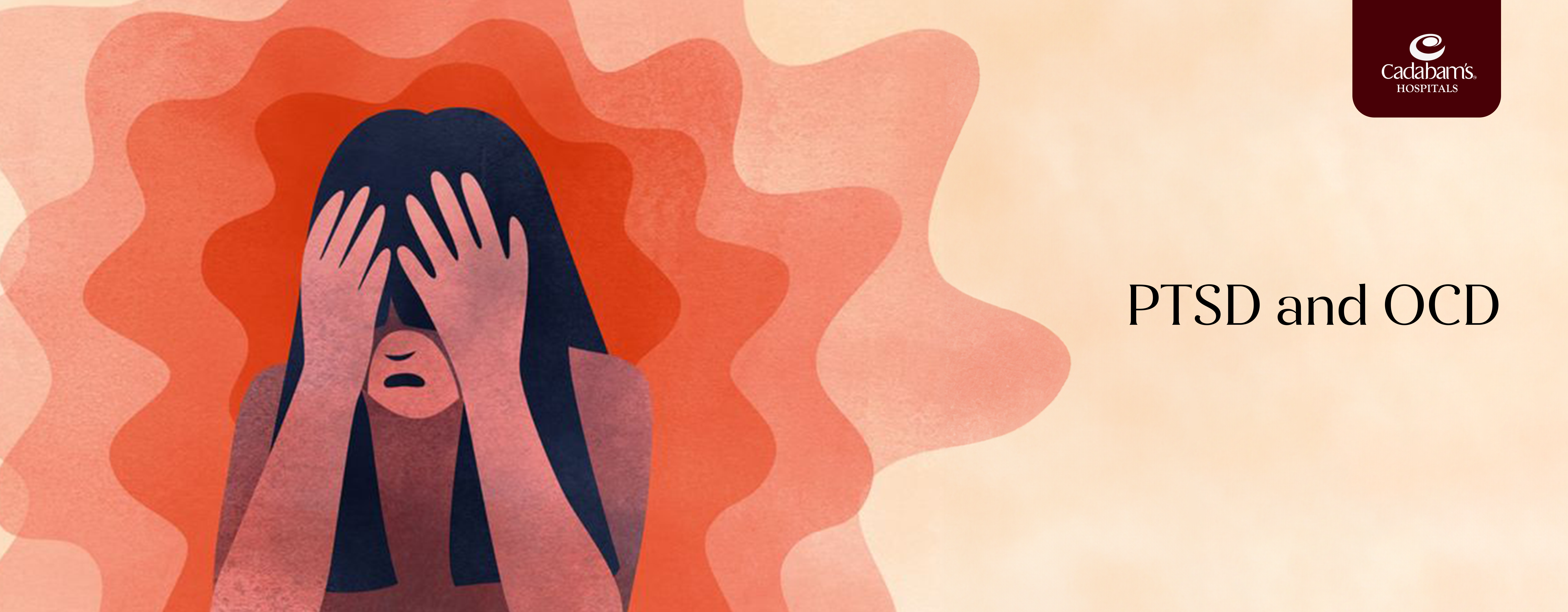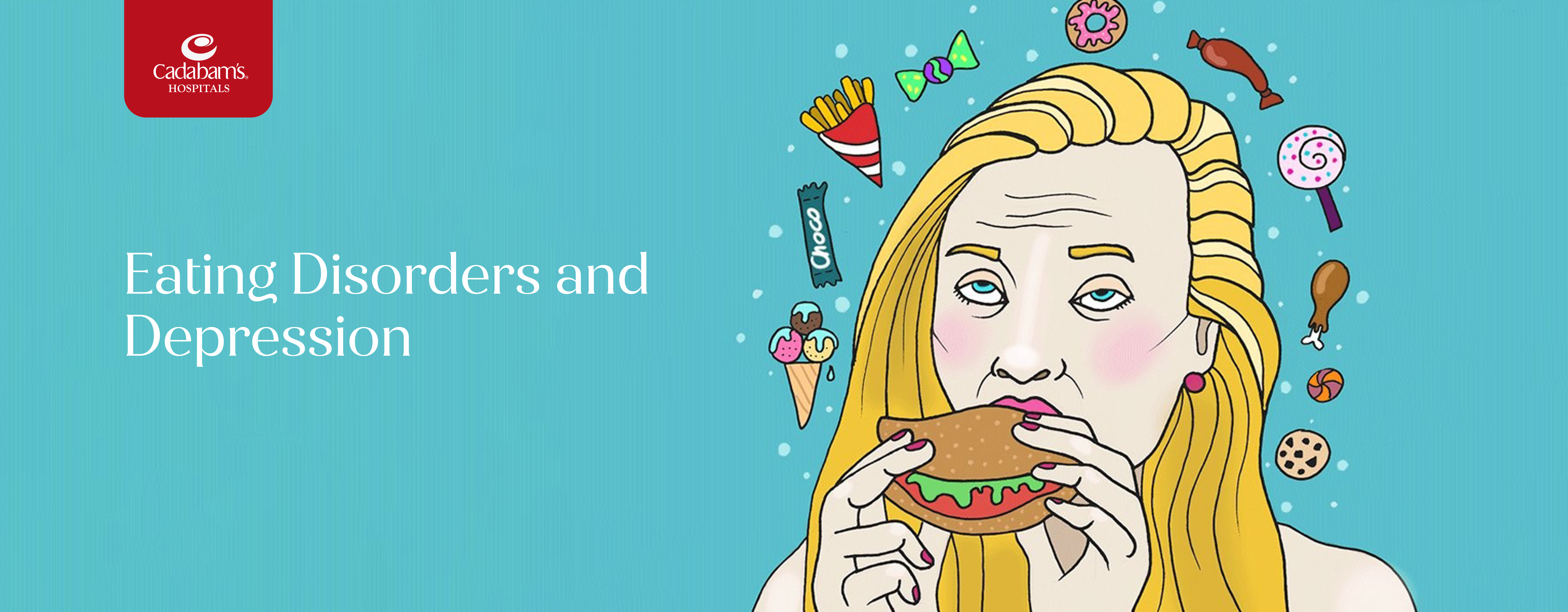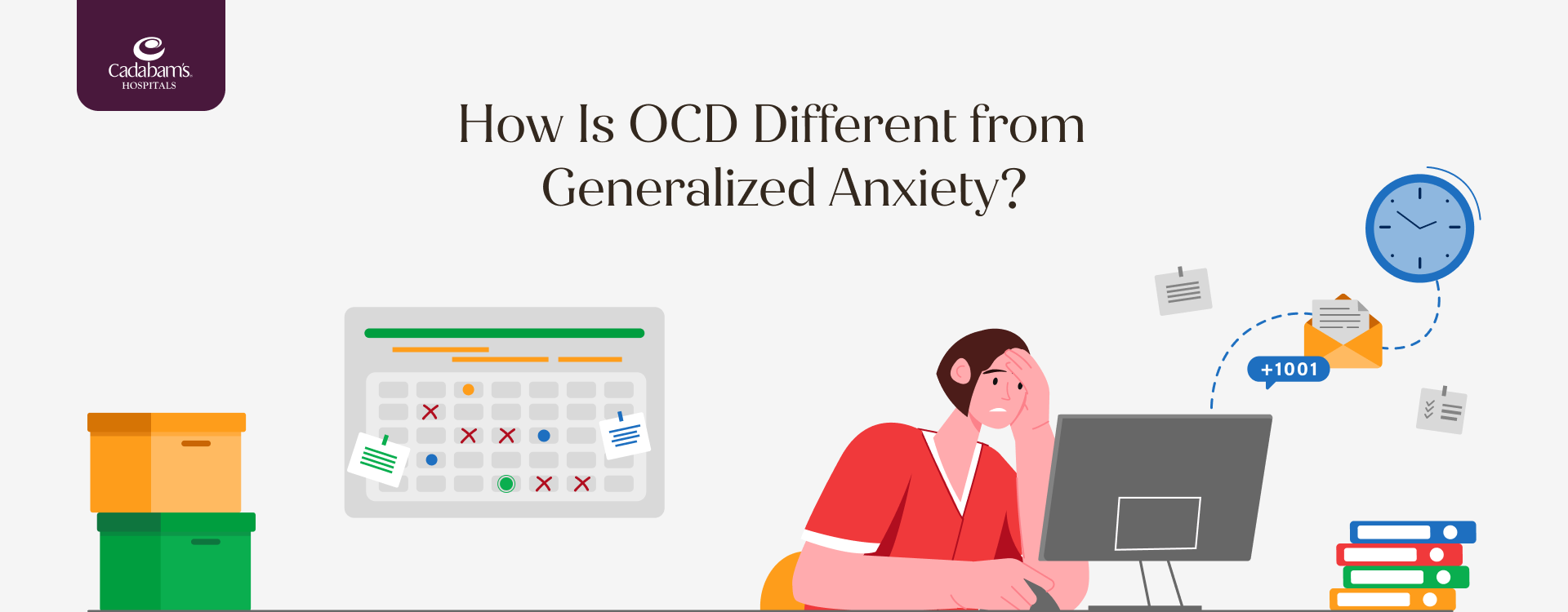Table of Content
What is Anxiety Disorder?
Getting anxious in social situations or before your exam is normal. Now for most of us, with time these distressing emotions fade away. But for those diagnosed with anxiety disorders, the experience is a lot different. Anxiety is a normal stress reaction, but when it is an amplification of severe nervousness and worry, then it is medically referred to as an Anxiety Disorder. So if you are feeling anxious for no reason or just have a feeling of dread with no clear cause, then you might have an anxiety disorder.
Now we understand that it can be frustrating and challenging to live with this condition which is why the first step towards getting rid of anxiety is to address the issue and talk about it.
What are the signs of anxiety?
Since we are all prone to a certain extent of worry or nervousness, it is important to recognize and understand the specific symptoms that set anxiety disorders apart. Let's explore this through the physical, psychological, and behavioral signs-
Physical symptoms
- Shortness of breath
- Sweaty or cold hands
- Dehydration
- Rapid heart rate
- Nausea
- Numbness
- Muscle tension
Psychological symptoms
- A constant state of panic or worry
- Nightmares
- Frequent flashbacks of trauma
- Irrational and uncontrollable thoughts
- Lack of concentration
Behavioral symptoms
- Trouble sleeping
- Hypervigilance
- Repetitive behaviors
- Restlessness
How long can an anxiety attack last?
In an anxiety attack, people might feel apprehensive, fearful, experience a heart racing, or feel short of breath. Usually, such attacks are short-lived and when the stressor goes away, the attack fades too.
A panic attack, on the other hand, is a completely unprovoked and unpredictable situation, which doesn’t come in reaction to a stressor. Mostly panic attacks will last for a short period, like a few minutes, even though they feel like they last for a lifetime when you’re experiencing one. The symptoms will peak within ten minutes and then slowly fade away. A major part of overcoming an anxiety or panic attack is to identify its duration. Sometimes the panic attacks will last for a few seconds, or they will peak for a few minutes.
Research says that a standard panic attack will last for thirty minutes. Some patient reports have shown that their attacks have lasted for hours or even days. Further experts say that if a symptom doesn’t peak within 10 minutes, then it’s considered a full-blown panic attack; the feeling will have a sudden onset of panic. It’s also possible to experience many panic attacks at once; the feeling will take place in waves and can last for an hour or more.
10 Ways to Reduce Anxiety
If you are wondering how to reduce anxiety or how to overcome anxiety, then be assured that it is not a one-day process. It might take some time and patience, but with persistent practice and willpower, you can help yourself or any of your loved one who is suffering from anxiety. Getting rid of anxiety is a journey and you may need to ask for help along the way. Do not shy away from speaking to a therapist or psychologist about your anxiety, they can give you the right tools to cope with anxiety.
Here are the 10 best tips from our experts to help cope and reduce the symptoms of anxiety disorder. Try these when you're feeling anxious or stressed -
- Exercise: Sweating is often one of the best signs of a healthy mind and body. As per health experts, exercise has been one of the proven techniques against anxiety, depression, and many other medical conditions. Hence practicing exercise daily for at least 20 minutes might help in controlling anxiety. Working out may be the last thing on your mind if you are having an anxiety episode. But, engaging in gentle exercises is one of the best solutions. It will help your body release endorphins and increase your serotonin levels, this will help you feel better emotionally.
- Minimize digital media usage: Yes, there are a lot of advantages that come with technology. However, it is to be used in moderation as excessive usage can lead to mental health conditions such as internet addiction, smartphone addiction, social media addiction, porn addiction, and gaming addiction.
- Understand your body: Anxiety disorder often makes a person feel like dying or experiencing a heart attack. Remind yourself that an anxiety attack is a temporary condition and it won’t cause any permanent harm to you unless you react to it. The body is just stimulating a fight-or-flight response in the absence of any danger, calming and grounding your mind using anxiety exercises that your therapist gives you will help you recover quickly.
- Organise tasks: Try to systemize all your tasks because procrastination and anxiety go hand-in-hand. The unfinished work, pending tasks, or postponed events may lead to unwanted stress and anxiety. To cover these situations organize all the tasks as per priority, maintain deadlines and prepare a to-do list.
- Understand the condition: Learn and have an idea about the symptoms of anxiety disorder. Anticipating the physical symptoms may reduce the fear of the unknown plus bring down the nervousness. Furthermore, it also helps the individual to explain his /her symptoms to the therapist or the counselor.
- Practice breathing exercises: Studies found breathing exercise has an immense impact and it is the best coping tool against acute anxiety attacks. During an anxiety attack, the stress hormones are released which makes the individual feel the physical symptoms of stress. Deep breathing helps to calm the nervous system.
- Be prepared: With anxiety, imagining the worst-case scenario for any and all situations is an innate tendency. As much as this is time-consuming, it will also impair your daily functioning. Hence, try and engage in positive self-talk. Promise yourself “Yes. I'm nervous and worried, but I'm ready to take this challenge on”. This rational thinking can help the brain to elevate confidence and build resistance towards anxious thoughts.
- Say no to caffeine: Caffeine is a strong stimulant that increases anxiety. On any day a cup of coffee, chocolate or a can of Coke can help you feel better. However, if you ingest these products daily for the caffeine then the chances of your anxiety getting worse will increase. It gives your nervous system a jolt of energy which can induce an anxiety attack especially if you’re already under high stress. If the thought of giving up coffee, cold turkey, terrifies you then you can reduce your intake or have the stuff in moderation.
- Stop your dependence on alcohol or drugs: People who suffer from anxiety or depression will start relying on mood-altering substances like alcohol or drugs in a desperate attempt to self-medicate. Once you feel reliant on addictive substances to find relief from anxiety then it’s time to seek professional help.
- Talking it out: Venting to a loved one, someone who you can trust, who can hear you out and help you cope with your anxiety episodes. Talking to a friend or family member will help you release your emotions in a controlled manner.
When to Seek Help for Anxiety?
There are many ways to get rid of anxiety but if you have tried things like talking to a friend, eating healthy, sticking to a routine, exercising, and so on, and think that you require an extra bit of assistance, it’s time to visit a therapist.
If your anxiety is causing you to function poorly in your professional or personal environments for a long period, then that’s a sure sign that you need help.
It is possible that even after identifying the triggers and signs of the anxiety attack, it is quite difficult to control your nerves and symptoms. In such cases, a therapist is the best person to diagnose what gets rid of anxiety for you.
Since there are different types of Anxiety disorders like - Generalized Anxiety Disorder (GAD), Social Anxiety, Panic Disorders, Obsessive-Compulsive Disorders, and Post-Traumatic Stress Disorder (PTSD), etc it is impossible for you to understand and detect your exact medical condition without a medical diagnosis. Hence it is highly advisable to talk to a professional to seek anxiety disorder treatment.
At Cadabams Hospitals, the professional team of Psychiatrists, Psychologists, and Therapists engage with you to cope with the condition keeping in mind the bio-psycho-social model. With treatment, you can develop coping skills and effectively handle and deal with the high-risk situation.
FAQs
How can I calm my anxiety?
There are several techniques that have proven to be effective in calming anxiety. Common ones include-
- Exercise
- Avoid caffeine
- Journal
- Practice positive affirmations
- Try diaphragmatic breathing exercises
- Reach out to a loved one
How can I get rid of anxiety fast?
As your anxiety intensifies it may feel impossible to cope with, however, taking a step back and following these tips may help you relieve the symptoms immediately.
- Practice breathing exercises
- Listen to music
- Reach out to a loved one
- Engage in physical activity
- Journal your thoughts
Can anxiety be cured?
A comprehensive diagnosis and treatment plan is the first step towards overcoming anxiety. With the proper treatment modality and medications based on the severity of your anxiety, you can learn to manage the symptoms and overcome their impact on your functioning.
How can I stop feeling anxious for no reason?
We understand that it may be easier said than done but talking about your feelings and recognizing triggers can go a long way in managing your anxiety. Most of the time, you may feel anxious without a specific cause which is why using breathing techniques, muscle relaxation exercises, and more can help you overcome anxiety.
How to get rid of anxiety and stress?
Here are a few techniques to overcome anxiety and stress-
- Reach out to a loved one
- Listen to music
- Engage in physical activity
- Journal your thoughts
- Practice breathing exercises
How to get rid of overthinking?
Our experts recommend the following strategies to help you overcome overthinking.
- Step back and reflect on your thoughts and feelings.
- Find a distraction
- Practice deep breathing exercises
- Challenge your irrational thoughts
- Journal your feelings
How Cadabam's Help you for Addiction?
- 410+ Professional Consultants
- 1,00,00+ Happy Faces
- 120+ Currently Seeking Treatments











